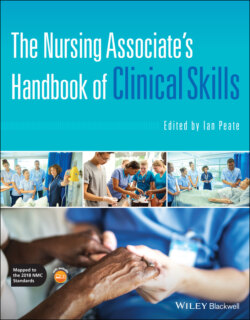Читать книгу The Nursing Associate's Handbook of Clinical Skills - Группа авторов - Страница 200
Violet Flag
ОглавлениеThe records that the nursing associate writes (regardless of format) can be used by other agencies to help them make decisions regarding a person’s needs, for example, the housing department and the local council. The housing department may request to see documentation regarding the patient’s ability to carry out the activities of living (can they walk up a flight of stairs unaided), and the local council may use the data in the nursing associate’s documentation to help determine if the person is entitled to certain benefits. By implementing the following, the nursing associate may be able to avoid issues related to record‐keeping:
Always use factual, reliable, accurate, objective and unambiguous patient information.
Employ your senses in order to record what you did, for example, ‘I heard’, ‘felt’ and ‘saw’.
Where necessary, use quotation marks when you are recording what has been said to you.
Be sure there is evidence provided for any decision recorded, for example, denying access to a visit from parents.
Notes must be accurately dated, timed and signed, with your name printed alongside the entry, and avoid the use of initials.
Make a note of any objections you may have to the care that has been given.
Do not include jargon, meaningless phrases, such as ‘patient had a good day’, irrelevant speculation and offensive subjective statements.
When writing notes, where this is possible, do so with the involvement and understanding of the patient or carer.
